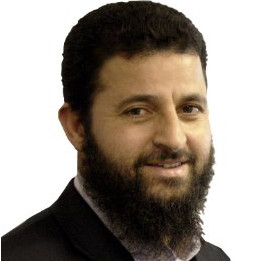One of the models for entrepreneurial development which has attracted a lot of replication in many places, Dubai included, is the Singapore model. Its government-led programs have sparked a rapidly developing venture capital ecosystem that, while dwarfed in size by Silicon Valley, is regarded as a success story globally.
Venture capital investment into Singapore during 2013 doubled to reach $454 million according to a 2014 Preqin/SVCA report, about half the total for Canada. The lesson to take from Singapore’s success in becoming a vibrant center for venture capital is not that the government-led approach, which Singapore has relied heavily upon, is the best in every situation. For example, consider Dubai which has a much higher profile as a regional financial center. Many global firms choose to locate their regional base in the Dubai International Financial Centre. The biggest challenge for Dubai is not attracting investors but in developing suitable, early-stage ventures and the entrepreneurial ecosystem which cultivates it.
This is a demand-side shortfall in the venture capital marketplace. Increasing funding (the ‘supply’ of VC) will not cause a vibrant ecosystem to sprout up. If the demand side develops there may be targeted situations in which government involvement can benefit. For example, Singapore used government awards for failed entrepreneurs to encourage risk taking. This could also help to encourage prospective entrepreneurs who are currently discouraged by a more conservative attitude towards risk-taking.
But without much bigger, more impactful efforts it won’t work on its own and it won’t create the entrepreneurial ‘spark’ that creates the idea that can become a start-up. One example used in many countries is to launch competitions to find the best products from promising entrepreneurs and highlight them in a way that validates their efforts and helps them become businesses.
One such competition is Innovation 4 Impact, organized by Dtec, Dubai Silicon Oasis Authority and  Thomson Reuters, which seeks to find groundbreaking digital technologies that will support the growth of the Islamic digital economy. In addition to recognizing these entrepreneurs, the competition showcases their innovation in front of the Global Islamic Economy Summit (GIES 2015), provides incubation services to turn their idea into a business, and connects them with an opportunity to make a pitch directly to the Silicon Oasis Founders Investment Fund.
Thomson Reuters, which seeks to find groundbreaking digital technologies that will support the growth of the Islamic digital economy. In addition to recognizing these entrepreneurs, the competition showcases their innovation in front of the Global Islamic Economy Summit (GIES 2015), provides incubation services to turn their idea into a business, and connects them with an opportunity to make a pitch directly to the Silicon Oasis Founders Investment Fund.
Although the selected finalists in the Innovation 4 Impact competition will value the incubation support and chance to get directly in front of investors, the venture capital ecosystem will benefit mostly by the positive example the shortlisted finalists set as representatives of the next generation of entrepreneurs. They will provide an inspiration to others who will realize that, if they put their mind to it, they too can come up with an innovative solution.
The location of the competition in Dubai and its focus on the Islamic digital economy is both fitting with Dubai’s initiative to be the capital of the global Islamic economy. It would be an added bonus for the Islamic digital economy to be the area which demonstrates the beneficial links between Islam and commerce and their role in cultivating the entrepreneurial sector.
The Innovation 4 Impact competition is still accepting entries until 14 August. Shortlisted finalists will get a paid trip to Dubai to showcase their business centrestage at the Global Islamic Economy Summit (GIES 2015). More information is available from innovation4impact.net.



